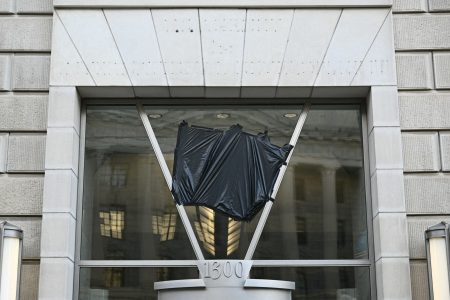The escalating debate over book bans in educational institutions has reached a new crescendo with New Jersey becoming the latest state to enact legislation protecting the freedom to read. Governor Phil Murphy, a Democrat, signed the bill into law, effectively prohibiting public and school libraries from banning books based on their origin, author’s viewpoints, or the discomfort they might cause some individuals. This move positions New Jersey in stark contrast to several Republican-led states that have recently implemented or considered restrictions on library materials, often targeting books dealing with LGBTQ+ themes, race, or containing sexually explicit content. The new law underscores the growing ideological divide across the nation, transforming the landscape of education and access to information into a “patchwork quilt” of varying regulations and philosophies. This signifies not only a divergence in political perspectives but also a fundamental disagreement about the role of libraries and the principles of intellectual freedom in a democratic society.
New Jersey’s new law is not simply a reactive measure against the wave of book bans sweeping certain parts of the country; it proactively establishes safeguards for librarians against potential legal repercussions for upholding the principles of intellectual freedom. This provision offers crucial protection for library professionals who may face pressure from individuals or groups advocating for the removal of specific titles. The legislation also mandates the creation of clear policies for book curation and removal, ensuring transparency and accountability in the decision-making process. While permitting restrictions on “developmentally inappropriate material,” the law avoids broad, subjective interpretations that could be exploited for censorship. This careful balancing act aims to protect young readers while also ensuring access to a wide range of perspectives and information. The law represents a conscious effort to reinforce the role of libraries as vital community resources and champions of intellectual exploration.
The signing of the bill in Princeton, near the prestigious university, carries symbolic weight, underscoring the importance of unrestricted access to knowledge in both academic and public spheres. Governor Murphy’s comments at the signing ceremony highlighted the growing national divide on this issue, emphasizing the significance of location in determining an individual’s access to information. This “patchwork quilt” analogy aptly captures the increasingly fragmented landscape of educational policies across the United States, creating a situation where a student’s access to certain books may depend on their zip code. This disparity raises concerns about equity and the potential for certain viewpoints to be silenced or amplified based on geographical location.
The impetus for this legislation arises from the surge in book challenges and bans initiated predominantly in conservative-leaning states. Groups like Moms for Liberty have advocated for greater parental control over the selection of library materials, often citing concerns about sexually explicit content or materials they perceive as promoting inappropriate ideologies. These concerns, while valid in some instances, have often led to the targeting of books exploring LGBTQ+ themes, race relations, and other sensitive topics. Critics argue that these challenges frequently stem from a desire to suppress marginalized voices and restrict access to diverse perspectives. The New Jersey law stands as a counterpoint to this trend, aiming to protect the freedom to read and ensure that libraries remain spaces where individuals can explore a wide range of ideas and experiences.
Librarians and advocates for intellectual freedom have celebrated the passage of the law, recognizing it as a vital step in preserving the integrity of libraries as centers for learning and discovery. The law affirms the professional expertise of librarians in curating collections that serve the diverse needs of their communities. It also recognizes the crucial role libraries play in fostering critical thinking and promoting intellectual growth, particularly among young people. By protecting librarians from potential legal challenges, the law empowers them to resist censorship and maintain the open access principles that are fundamental to the mission of libraries.
The personal stories shared during the bill signing ceremony further underscore the real-world impact of book challenges and bans. Retired librarian Martha Hickson’s experience of facing harassment and accusations of promoting pedophilia due to the inclusion of certain books in her library highlights the chilling effect such challenges can have on library professionals. Her story serves as a stark reminder of the personal toll these controversies can take and the importance of legislative protections for those who dedicate their careers to providing access to information. The enactment of this law provides a measure of vindication for Hickson and other librarians who have faced similar challenges, reaffirming the value of their work and the importance of safeguarding intellectual freedom. The one-year implementation period allows time for the state’s education commissioner and state librarian to develop specific guidelines and procedures, ensuring a smooth and effective rollout of the new law.










